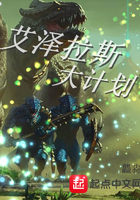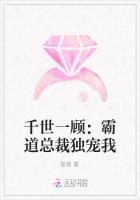No one person could say of them: "I made that; this is my product."But where, in a given society, the fundamental form of production is that spontaneous division of labour, there the products take on the form of commodities whose mutual exchange, buying and selling, enable the individual producers to satisfy their manifold wants. And this was the case in the Middle Ages. The peasant, e.g., sold to the artisan agricultural products and bought from him the products of handicraft. Into this society of individual producers, of commodity producers, the new mode of production thrust itself. In the midst of the old division of labour, grown up spontaneously and upon no definite plan , which had governed the whole of society, now arose division of labour upon a definite plan , as organised in the factory; side by side with individual production appeared social production. The products of both were sold in the same market, and, therefore, at prices at least approximately equal. But organisation upon a definite plan was stronger than spontaneous division of labour.
The factories working with the combined social forces of a collectivity of individuals produced their commodities far more cheaply than the individual small producers. Individual production succumbed in one department after another. Socialised production revolutionised all the old methods of production.
But its revolutionary character was, at the same time, so little recognised that it was, on the contrary, introduced as a means of increasing and developing the production of commodities. When it arose, it found readymade, and made liberal use of, certain machinery for the production and exchange of commodities:
merchants' capital, handicraft, wage-labour. Socialised production thus introducing itself as a new form of the production of commodities, it was a matter of course that under it the old forms of appropriation remained in full swing, and were applied to its products as well.
In the mediaeval stage of evolution of the production of commodities, the question as to the owner of the product of labour could not arise.
The individual producer, as a rule, had, from raw material belonging to himself, and generally his own handiwork, produced it with his own tools, by the labour of his own hands or of his family. There was no need for him to appropriate the new product. It belonged wholly to him, as a matter of course. His property in the product was, therefore, based upon his own labour. Even where external help was used, this was, as a rule, of little importance, and very generally was compensated by something other than wages. The apprentices and journeymen of the guilds worked less for board and wages than for education, in order that they might become master craftsmen themselves. Then came the concentration of the means of production in large workshops and manufactories, their transformation into actual socialised means of production. But the socialised means of production and their products were still treated, after this change, just as they had been before, i.e., as the means of production and the products of individuals.
Hitherto, the owner of the instruments of labour had himself appropriated the product, because, as a rule, it was his own product and the assistance of others was the exception. Now the owner of the instruments of labour always appropriated to himself the product, although it was no longer his product but exclusively the product of the labour of others. Thus, the products now produced socially were not appropriated by those who had actually set in motion the means of production and actually produced the commodities, but by the capitalists. The means of production, and production itself had become in essence socialised. But they were subjected to a form of appropriation which presupposes the private production of individuals, under which, therefore, everyone owns his own product and brings it to market. The mode of production is subjected to this form of appropriation, although it abolishes the conditions upon which the latter rests. *8 This contradiction, which gives to the new mode of production its capitalistic character, contains the germ of the whole of the social antagonisms of today. The greater the mastery obtained by the new mode of production over all decisive fields of production and in all economically decisive countries, the more it reduced individual production to an insignificant residium, the more clearly was brought out the incompatibility of socialised production with capitalistic appropriation.















